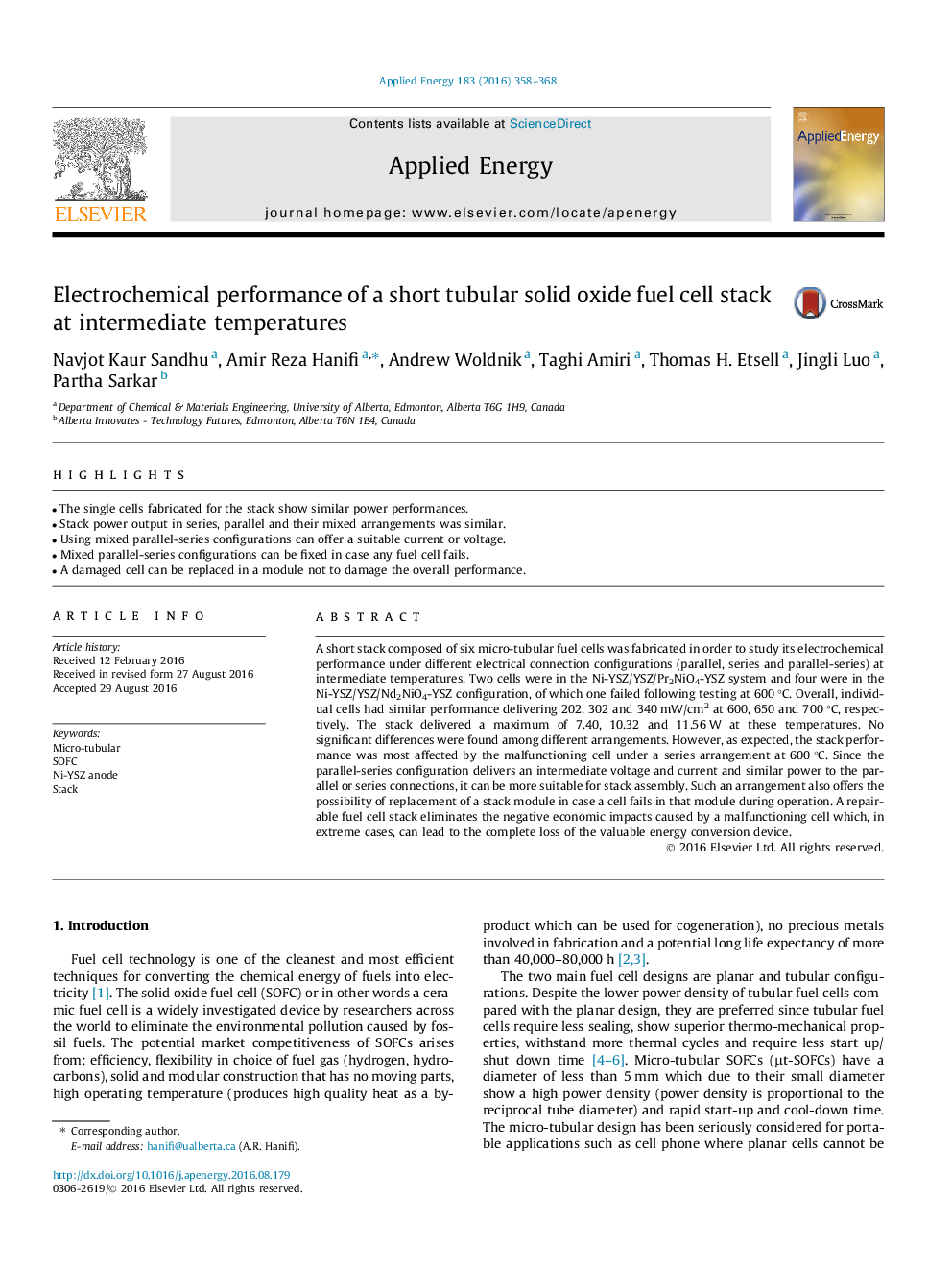| Article ID | Journal | Published Year | Pages | File Type |
|---|---|---|---|---|
| 4916580 | Applied Energy | 2016 | 11 Pages |
Abstract
A short stack composed of six micro-tubular fuel cells was fabricated in order to study its electrochemical performance under different electrical connection configurations (parallel, series and parallel-series) at intermediate temperatures. Two cells were in the Ni-YSZ/YSZ/Pr2NiO4-YSZ system and four were in the Ni-YSZ/YSZ/Nd2NiO4-YSZ configuration, of which one failed following testing at 600 °C. Overall, individual cells had similar performance delivering 202, 302 and 340 mW/cm2 at 600, 650 and 700 °C, respectively. The stack delivered a maximum of 7.40, 10.32 and 11.56 W at these temperatures. No significant differences were found among different arrangements. However, as expected, the stack performance was most affected by the malfunctioning cell under a series arrangement at 600 °C. Since the parallel-series configuration delivers an intermediate voltage and current and similar power to the parallel or series connections, it can be more suitable for stack assembly. Such an arrangement also offers the possibility of replacement of a stack module in case a cell fails in that module during operation. A repairable fuel cell stack eliminates the negative economic impacts caused by a malfunctioning cell which, in extreme cases, can lead to the complete loss of the valuable energy conversion device.
Keywords
Related Topics
Physical Sciences and Engineering
Energy
Energy Engineering and Power Technology
Authors
Navjot Kaur Sandhu, Amir Reza Hanifi, Andrew Woldnik, Taghi Amiri, Thomas H. Etsell, Jingli Luo, Partha Sarkar,
